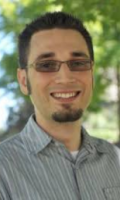Keith Evans, Ph.D.
Contact Information
Phone: 207.581.4324
CV: Link to Evans CV
Email: keith.evans@maine.edu
Education
Ph.D. Iowa State University, 2011
Description
I grew up in an agricultural region of Northern California (mostly almonds, peaches, and rice). Aquaculture and fish hatcheries were also important in the region, used to offset reductions in wild salmon populations along the Sacramento River system. I received my bachelor’s degree in economics from Chico State, where I had the opportunity to assist in research regarding population targets and recreational salmon fishing. I earned my Ph.D. from Iowa State University in 2011. During my time at Iowa State, I was awarded a Pre-Doctoral Research Fellowship in Environmental and Resource Economics from the Center for Environmental Economics and Sustainability Policy at Arizona State University, where I completed my dissertation. My doctoral research focused on problems of learning and uncertainty relating to non-market valuation and fishery management.
Research interests
Search; learning; Information sharing; fishery management; nonmarket valuation; applied econometrics.
My research falls into two categories, marine resource economics and applied econometrics. My work with marine resources is interested in the dynamic behavior of fishermen faced with uncertainty, but who have noisy information available – that is, learning is possible. Uncertainty is pervasive in fisheries. The ocean is very large and complex, and constantly changing. In this setting, fishing outcomes are determined by the dynamic interaction of fishermen and this biologic system. At any given point in time, no fisherman, manager, or economist can predict with certainty the outcome of this interaction. Fishermen will not know what they will catch/earn from a site until they pull up their gear. Despite this, fishermen still decide where to fish and managers still set regulations. I am interested in how these fishermen make choices in this setting. Understanding how they respond may provide insight into how to adjust incentives to achieve socially advantageous outcomes.
My work in applied econometrics is more varied. This research has a strong emphasis on non-market valuation – measuring the value of goods/activities that do not have a direct market price. This research has dealt with issues such as rounding in recreation demand models, valuing water quality across Iowa lakes and rivers, remediation of Superfund sites in Arizona, and estimating reputation formation among consignors (middlemen) in the market for thoroughbred racehorses.
I am currently working on several projects. These range from valuing the loss of revenue associated with the closure of clam acreage in Maine, to examining the adjustment of fisheries and fishermen to changes in marine policy, to studying fisheries as a complex adaptive system. Much of this work is interdisciplinary, offering me the opportunity to work with anthropologists, biologists, computer scientists, oceanographers, and statisticians (just to name a few).
Future research will focus on harvesting cooperatives, which exist in several U.S. fisheries. Specifically, I am interested in how harvesting cooperatives form, coordinate fishing activities, share rents and information, and evolve over time.
Publications
In Press
- Evans, Keith S. and Quinn Weninger. “Information Sharing and Cooperative Search in Fisheries.” Environmental and Resource Economics. July 2014, Volume 58, Issue 3, 353-372.For more information: Full Text
Additional Publications
- Noblet, Caroline, Mario Teisl, Keith S. Evans, Mark W. Anderson, Shannon K. McCoy and Edmund
Cervone. Public Preferences for Investments in Renewable Energy Production and Energy Efficiency.”
Energy Policy. Forthcoming.

